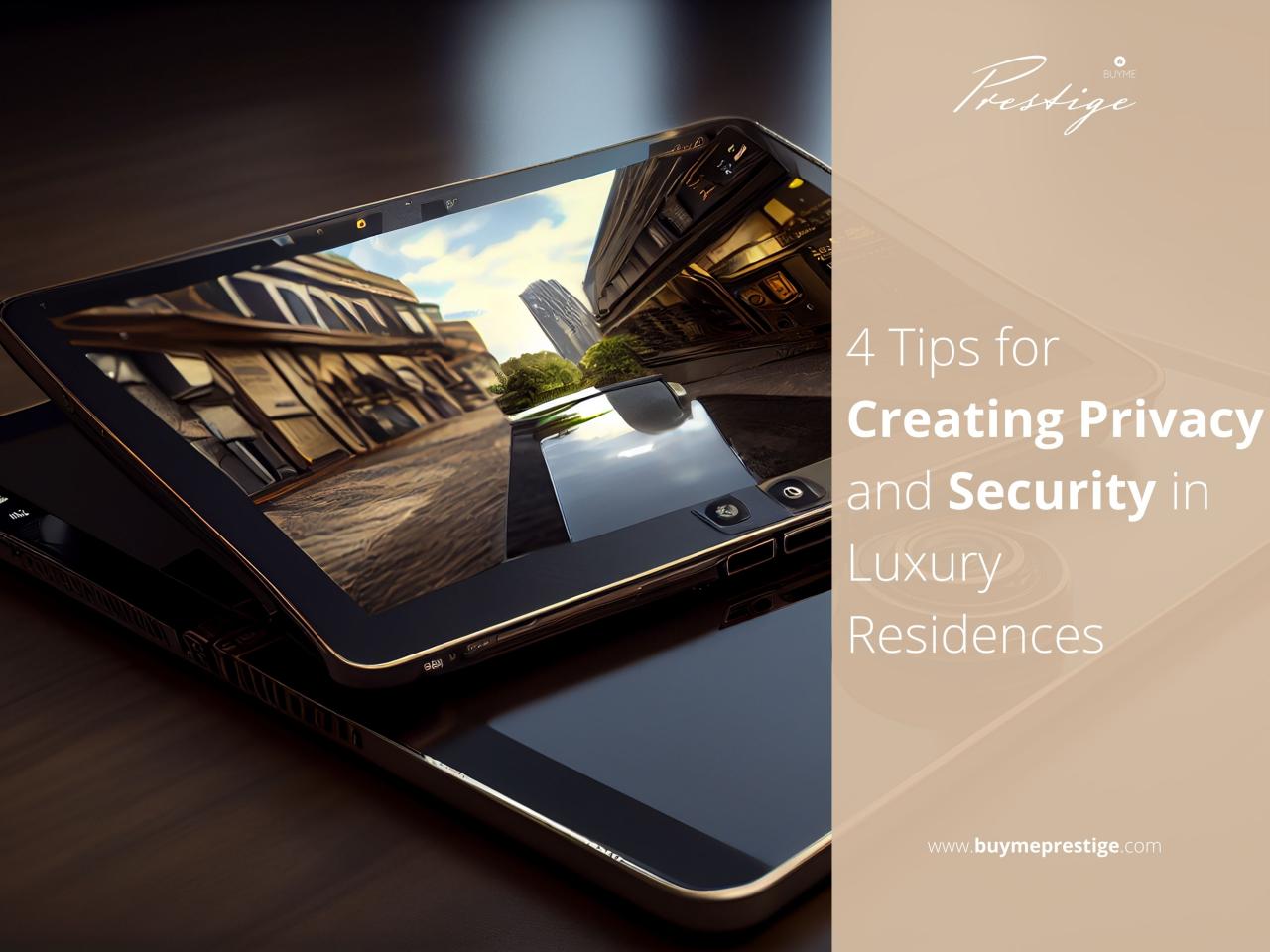5-Star hotels that prioritize guest privacy and security measures offer a unique experience, going beyond simple luxury. These establishments understand that peace of mind is paramount, investing heavily in advanced technologies and rigorous protocols to ensure a safe and discreet stay. From cutting-edge room security to comprehensive data protection policies and meticulous staff training, these hotels redefine what it means to be a haven for discerning travelers.
This exploration delves into the specific features and practices that set these hotels apart, examining everything from biometric access systems and sophisticated surveillance technologies to the detailed emergency procedures designed to protect guests’ well-being and personal information. We’ll also look at how these hotels navigate the increasingly complex landscape of data privacy regulations and emerging trends in security technology.
Defining “Prioritized Privacy and Security” in 5-Star Hotels
Prioritized privacy and security in a 5-star hotel goes beyond the standard expectations of luxury accommodation. It represents a proactive and comprehensive approach to safeguarding guest information, possessions, and overall well-being, creating an environment of unparalleled discretion and peace of mind. This is achieved through a sophisticated blend of physical infrastructure, advanced technology, and meticulously trained staff.The defining characteristics of a 5-star hotel with exceptional privacy and security lie in its commitment to exceeding industry standards.
Five-star hotels invest heavily in robust security systems, often incorporating biometric access and advanced surveillance. This level of protection mirrors the sophisticated home security setups many individuals desire, which often requires understanding home security automation system compatibility with different smart assistants for seamless integration. Ultimately, both high-end hotels and tech-savvy homeowners share the common goal of maximizing safety and peace of mind.
It’s not just about having security guards; it’s about a holistic approach that anticipates and mitigates potential threats before they arise. This proactive stance distinguishes it from standard luxury hotels that may focus primarily on superficial aspects of luxury. The emphasis shifts from simply providing a luxurious experience to ensuring that this experience is delivered within a secure and private environment.
Technological and Physical Security Measures
Implementing robust technological and physical security measures is paramount. This involves a multi-layered approach incorporating advanced surveillance systems, such as high-definition CCTV cameras strategically placed throughout the property, including blind spots, and monitored 24/7 by trained personnel. Biometric access control systems, potentially including facial recognition technology at key areas, restrict entry to authorized individuals only. Sophisticated intrusion detection systems, encompassing motion sensors and pressure plates, provide early warning of any unauthorized access attempts.
Furthermore, encrypted Wi-Fi networks and robust data protection protocols ensure the confidentiality of guest information. Physical security includes reinforced doors and windows, secure parking facilities with surveillance, and potentially dedicated security personnel patrolling the premises at all hours. Emergency response systems are also critical, ensuring quick and effective response to any security incident. The hotel might even utilize advanced technologies like drone surveillance for perimeter security in larger properties.
Guest Service Protocols Enhancing Privacy and Security
Exceptional privacy and security are not solely reliant on technology and physical infrastructure. They are fundamentally shaped by the guest service protocols implemented. Discreet and professional staff are trained to handle sensitive information with utmost confidentiality. This includes adhering to strict data protection policies, limiting access to guest information to authorized personnel only, and ensuring secure handling of personal belongings.
Check-in and check-out procedures are streamlined to minimize the time guests spend in public areas, potentially offering private check-in options for VIP guests. Dedicated concierge services might offer personalized security briefings, addressing specific guest concerns and needs. Moreover, the hotel may offer secure in-room safes, or even provide personalized security details for guests who request it. These protocols, combined with the technological and physical measures, create a secure and private haven for the discerning guest.
Guest Room Security Features
Maintaining guest privacy and security is paramount in a five-star hotel. Guest rooms, being personal sanctuaries, require advanced security systems that balance technological sophistication with discreet integration into the overall design and experience. This ensures peace of mind for guests while maintaining the luxurious ambiance expected at this level.
Five-star hotels employ a multi-layered approach to guest room security, integrating both visible and invisible measures. Visible measures reassure guests, while the less obvious systems provide robust protection against unauthorized access and data breaches. This comprehensive strategy aims to create a secure and private environment for every guest.
Advanced Security Systems in Guest Rooms
High-end hotels utilize a range of advanced technologies to enhance guest room security. Smart locks, for instance, allow keyless entry via mobile apps or key cards, eliminating the risk of lost or duplicated keys. Biometric access systems, such as fingerprint or facial recognition scanners, offer an even higher level of security and personalized access. These systems are often integrated with the hotel’s overall security management system, providing real-time monitoring and alerts.
Additionally, some hotels incorporate advanced surveillance systems, such as discreetly placed cameras within the room’s public areas (e.g., hallways), offering an additional layer of security without compromising guest privacy. Finally, robust encryption protocols are employed to protect data transmitted between guest devices and the hotel’s network.
Comparison of Room Security Technologies
The following table compares different room security technologies, considering their cost-effectiveness and impact on privacy:
| Technology | Cost | Effectiveness | Privacy Implications |
|---|---|---|---|
| Smart Locks (Key Card) | Medium | Medium | Low; data encryption is crucial |
| Smart Locks (Biometric) | High | High | Medium; data storage and usage policies must be transparent |
| Video Surveillance (Hallways) | High | High (deterrent effect) | Low; cameras are generally placed in public areas |
| Encrypted Wi-Fi | Medium | Medium | Low; protects data transmitted over the network |
Data Privacy Measures for Room Technologies
Hotels employ several measures to ensure the privacy of guest data collected through room technologies. This includes adhering to strict data protection regulations such as GDPR and CCPA. Data minimization is a key principle – only necessary data is collected and retained for a limited time. Robust encryption protocols safeguard data both in transit and at rest.
Transparent data usage policies are readily available to guests, detailing how their data is collected, used, and protected. Hotels also regularly conduct security audits and vulnerability assessments to identify and address potential weaknesses in their systems. Finally, staff receive comprehensive training on data privacy and security best practices. For example, a hotel might utilize anonymized data to improve services without revealing individual guest information.
Similarly, data retention policies might dictate the automatic deletion of guest data after a certain period unless specifically required for legal or operational purposes.
Hotel-Wide Security Measures: 5-star Hotels That Prioritize Guest Privacy And Security Measures
Maintaining a secure and private environment in a five-star hotel requires a comprehensive approach extending beyond individual guest rooms. This involves rigorous staff training, advanced surveillance systems, and carefully managed access protocols throughout the entire property. The goal is to create an atmosphere where guests feel safe and confident that their privacy is respected at all times.Hotel-wide security isn’t just about technology; it’s fundamentally about people.
A well-trained staff is the first line of defense in protecting guest privacy and security. This extends beyond basic security procedures to encompass a deeper understanding of guest expectations and the importance of discretion.
Staff Training in Privacy and Security
Comprehensive training programs for all staff members are crucial. This includes initial onboarding sessions covering hotel policies on data protection, confidentiality, and emergency procedures. Regular refresher courses reinforce these protocols and address emerging security threats. Training should emphasize the ethical considerations of handling guest information and the importance of reporting any suspicious activity immediately. Role-playing scenarios help staff practice responding to various situations, ensuring consistent and effective responses to potential security breaches.
For example, staff are trained to discreetly handle requests for assistance without revealing sensitive information to other guests or bystanders. Furthermore, regular audits and assessments of staff performance ensure that training is effective and up-to-date.
Surveillance Systems and Protocols
Five-star hotels typically employ sophisticated surveillance systems to monitor public areas and maintain security. Closed-circuit television (CCTV) cameras are strategically placed throughout the property, including lobbies, corridors, elevators, and exterior areas. These cameras are monitored 24/7 by trained security personnel. Access control systems, such as key card entry for guest rooms and restricted areas, further enhance security.
These systems record access attempts, providing an audit trail for investigations if necessary. Facial recognition technology might be incorporated in high-security areas, although this is often used in conjunction with other security measures to ensure privacy is not unduly compromised. Data from surveillance systems is securely stored and managed, adhering to strict data protection regulations. Regular maintenance and upgrades of these systems are essential to ensure their effectiveness.
Guest Access and Movement Management
Managing guest access and movement is vital for both security and privacy. Key card systems provide controlled access to guest rooms and designated areas. These systems can be programmed to restrict access based on time or specific areas. For example, access to certain floors or service areas may be limited to authorized personnel only. Hotels may also utilize digital registration and check-in/check-out processes to minimize personal contact and streamline the guest experience while maintaining a secure record of guest activity.
Reception staff play a crucial role in verifying guest identities and ensuring only authorized individuals access restricted areas. The implementation of visitor logs and procedures for handling deliveries and packages further strengthens security protocols. Regular reviews of access control policies and procedures ensure their ongoing effectiveness and adaptation to evolving security needs.
Data Privacy and Protection

Source: buymeprestige.com
At our 5-star hotel, we understand that your privacy is paramount. We are committed to protecting your personal data and adhering to the highest standards of data security. Our comprehensive data privacy policy ensures the responsible collection, storage, and use of your information throughout your stay and beyond. Transparency and guest control are central to our approach.We meticulously collect only the necessary personal data during the booking process and your stay.
This might include your name, contact information, payment details, and preferences regarding your stay. This data is used solely to facilitate your booking, manage your stay, and improve our services. We do not sell your data to third parties for marketing purposes.
Guest Data Handling Best Practices
Protecting your sensitive information is our top priority. We employ a multi-layered approach to data security, including robust encryption protocols and access control measures. The following best practices guide our handling of your data:
- Data Minimization: We collect only the data necessary for providing services and fulfilling legal obligations.
- Data Encryption: All sensitive data, including payment information, is encrypted both in transit and at rest using industry-standard encryption methods.
- Access Control: Access to guest data is strictly limited to authorized personnel on a need-to-know basis. Regular security audits ensure compliance with these access restrictions.
- Data Retention Policy: We retain your data only for as long as necessary to fulfill the purposes for which it was collected, or as required by law. After this period, data is securely deleted or anonymized.
- Regular Security Assessments: We conduct regular security assessments and penetration testing to identify and address potential vulnerabilities in our systems.
- Employee Training: Our staff receives regular training on data privacy best practices and security protocols.
- Incident Response Plan: We have a comprehensive incident response plan in place to handle any potential data breaches efficiently and effectively.
Compliance with Data Privacy Regulations
We are committed to complying with all relevant data privacy regulations, including the General Data Protection Regulation (GDPR) and the California Consumer Privacy Act (CCPA). Our data protection practices are designed to meet the requirements of these regulations and to provide you with control over your personal information. This includes providing clear and accessible information about our data processing activities, enabling you to exercise your rights (such as access, rectification, and erasure of your data), and responding promptly to your data privacy requests.
We maintain detailed records of our data processing activities to demonstrate compliance with these regulations and undergo regular internal and external audits to ensure ongoing adherence. Our commitment extends beyond mere compliance; we strive to exceed expectations and provide a secure and trustworthy environment for our guests.
Emergency Procedures and Guest Safety
Our commitment to guest safety extends beyond everyday operations; it’s paramount in emergency situations. We maintain comprehensive protocols designed to ensure the swift and secure evacuation or protection of our guests while preserving their privacy throughout the process. These procedures are regularly reviewed and updated in accordance with best practices and relevant legislation.Our emergency response is built on a layered approach, combining advanced technology with highly trained personnel.
This allows us to react effectively to a wide range of incidents, from minor disruptions to major emergencies. The goal is always to minimize disruption and ensure the well-being of our guests with the utmost discretion.
Emergency Evacuation Procedures, 5-star hotels that prioritize guest privacy and security measures
A detailed evacuation plan is posted in each guest room and clearly marked throughout the hotel. This plan includes multiple escape routes, assembly points, and designated staff roles. In the event of a fire or other emergency requiring evacuation, our trained staff will implement the plan, providing clear and concise instructions to guests. Guests with mobility challenges receive prioritized assistance, and multilingual staff are available to support international guests.
Our security team will coordinate with emergency services to ensure a smooth and safe evacuation. The process includes regular drills to ensure staff proficiency and guest awareness.
Security Incident Response
Our security team follows a strict protocol when responding to security incidents involving guests. This protocol prioritizes the safety and well-being of all individuals involved while maintaining confidentiality. The steps generally include: immediate assessment of the situation; securing the area to prevent further incidents; contacting relevant authorities if necessary; providing appropriate support to the affected guest(s); and conducting a thorough investigation to prevent future occurrences.
All interactions are documented meticulously and in accordance with data protection regulations.
Guest Communication During Security Events
Maintaining clear and timely communication with guests during security events is crucial, while also respecting their privacy. We utilize a multi-channel approach. This includes in-room messaging systems for immediate alerts, public address announcements where appropriate, and direct communication from security personnel when necessary. Information provided is factual, concise, and avoids unnecessary details that could compromise the privacy or safety of other guests or staff.
The aim is to keep guests informed without causing undue alarm or panic. Following the event, we may offer follow-up communication to check on guests’ well-being and offer support.
Illustrative Examples of High-Privacy 5-Star Hotels
Many five-star hotels go above and beyond standard security measures to provide guests with an unparalleled sense of privacy and security. This is often achieved through a combination of architectural design, advanced technology, meticulous staff training, and a commitment to data protection. The following examples showcase different approaches to achieving this high level of privacy and security.
The Amangiri, Utah, USA
The Amangiri resort in Utah’s Canyonlands boasts exceptional privacy due to its remote location and unique architectural design. The low-slung structures blend seamlessly into the desert landscape, offering a sense of seclusion and minimizing visual intrusion. Guests enjoy private patios and expansive windows that frame breathtaking views while maintaining a sense of seclusion. Technologically, the resort utilizes advanced security systems, including discreet surveillance cameras and robust cybersecurity protocols to protect guest data.
Staff undergo extensive training on discretion and privacy protocols, emphasizing the importance of maintaining guest confidentiality. The overall experience prioritizes a feeling of tranquil isolation and undisturbed relaxation.
The Brando, French Polynesia
Situated on a private atoll in French Polynesia, The Brando offers ultimate seclusion and privacy. The villas are meticulously spaced to maximize privacy, each featuring its own private plunge pool and expansive outdoor living areas. The resort’s commitment to sustainability also contributes to its privacy, as its reliance on renewable energy reduces the need for extensive infrastructure that might otherwise compromise the feeling of isolation.
Technological security measures are seamlessly integrated into the design, with minimal visible security apparatus. Staff training emphasizes discreet service and a deep understanding of guest expectations regarding privacy. The overall design and operational philosophy fosters an atmosphere of exclusive and undisturbed tranquility.
The Laucala Island Resort, Fiji
Laucala Island Resort in Fiji exemplifies ultimate privacy through its exclusive island setting. Accessible only by private plane, the resort offers complete seclusion. The villas, each with its own private beach and dedicated staff, are designed to maximize privacy and offer unparalleled luxury. The resort utilizes a sophisticated security system, combining state-of-the-art technology with traditional Fijian hospitality to ensure guest safety and privacy.
Five-star hotels invest heavily in robust security systems, from keycard access to 24/7 surveillance, ensuring guest peace of mind. This level of protection mirrors the importance of home security, especially in smaller spaces. If you’re looking to boost your apartment’s security, check out this helpful resource on home security automation system reviews and comparisons for small apartments to find the best fit for your needs.
Just like top hotels, a well-chosen system provides that same sense of safety and control within your own four walls.
Staff receive extensive training in discretion and guest service, fostering a culture of respect for guest confidentiality. The unique approach combines cutting-edge technology with a strong emphasis on personalized service and a deeply respectful cultural ethos.
Key Privacy and Security Features Comparison
| Hotel Name | Key Security Feature | Privacy Enhancement | Unique Approach |
|---|---|---|---|
| The Amangiri | Advanced surveillance and cybersecurity | Remote location, low-profile architecture | Seamless integration of technology with natural surroundings |
| The Brando | Discreet security systems, renewable energy infrastructure | Private atoll location, spacious villas | Sustainability contributing to seclusion and privacy |
| Laucala Island Resort | Sophisticated security system, dedicated staff | Exclusive island setting, private villas and beaches | Blending high-tech security with traditional Fijian hospitality |
Future Trends in Hotel Privacy and Security
The hospitality industry is undergoing a significant transformation driven by technological advancements and evolving guest expectations regarding privacy and security. Increasingly sophisticated cyber threats and a heightened awareness of data protection are forcing hotels to adopt proactive and innovative strategies to safeguard guest information and enhance the overall security experience. This necessitates a forward-looking approach, embracing emerging technologies and practices to maintain a competitive edge while prioritizing guest wellbeing.The convergence of several technological advancements is shaping the future of hotel privacy and security.
Biometric authentication, AI-powered surveillance, and blockchain technology are playing increasingly significant roles in enhancing security protocols and data protection measures. Simultaneously, evolving guest expectations are pushing hotels towards more personalized and transparent security practices.
Biometric Authentication and Access Control
Biometric technologies, such as fingerprint scanners and facial recognition systems, are rapidly becoming more prevalent in hotels. These systems offer a more secure and convenient alternative to traditional key cards, reducing the risk of unauthorized access and lost or stolen keys. For instance, a high-end hotel could integrate facial recognition at the entrance, elevators, and guest room doors, offering a seamless and secure check-in and room access experience.
The challenges lie in ensuring the ethical and responsible use of biometric data, adhering to strict privacy regulations, and addressing potential biases or inaccuracies within the technology. Hotels must also prioritize data encryption and secure storage to protect this sensitive information from unauthorized access or breaches.
AI-Powered Surveillance and Predictive Analytics
Artificial intelligence is revolutionizing hotel security by enabling predictive analytics and automated threat detection. AI-powered surveillance systems can analyze video footage in real-time, identifying suspicious activities and potential security risks. This allows security personnel to respond swiftly and effectively to incidents, improving overall guest safety. For example, an AI system could detect unusual behavior near a guest room, triggering an alert to security staff.
However, the use of AI in surveillance raises concerns about privacy and potential bias in algorithms. Transparency and accountability are crucial in implementing such systems, ensuring they are used responsibly and ethically.
Blockchain Technology for Enhanced Data Security
Blockchain technology, known for its secure and transparent nature, offers significant potential for enhancing data security in the hospitality industry. By storing guest data on a decentralized, immutable ledger, hotels can improve data integrity and protect against unauthorized access or modification. This could revolutionize how guest information is handled, providing greater transparency and control to guests over their personal data.
For example, guest information such as passport details and payment information could be stored on a blockchain, making it significantly more difficult for hackers to access or alter. The challenge lies in the complexity of integrating blockchain technology into existing hotel systems and ensuring its scalability for large-scale deployments.
Five-star hotels invest heavily in robust security systems, from keycard access to sophisticated surveillance. This dedication to guest safety mirrors the importance of securing our homes, which is why understanding how to prevent vulnerabilities is crucial. Learning about preventing home security automation system hacking and vulnerabilities can help us appreciate the complexity of maintaining privacy and security, much like the measures taken by high-end hotels.
Evolving Guest Expectations and Personalized Security
Guest expectations regarding privacy and security are constantly evolving. Guests are increasingly aware of data breaches and cybersecurity threats and demand greater transparency and control over their personal information. Hotels need to adapt to these expectations by implementing robust data protection policies, providing clear information about their security measures, and offering personalized security options tailored to individual guest preferences.
For example, a hotel could offer guests the choice of opting in or out of certain surveillance technologies or data collection practices. This proactive approach fosters trust and strengthens the guest-hotel relationship. Failure to adapt to these evolving expectations could lead to negative reviews and reputational damage.
Closing Summary
Ultimately, the commitment to guest privacy and security in top-tier hotels transcends mere compliance; it’s a fundamental aspect of the luxury experience itself. By understanding the layers of protection in place, travelers can confidently choose accommodations that prioritize their safety and peace of mind, allowing them to fully enjoy their stay without compromising their personal information or security. The future of this sector promises even more innovative solutions, further enhancing the guest experience and reinforcing the value of a truly secure and private retreat.
FAQ Summary
What types of insurance do these hotels carry to protect guests?
High-end hotels typically carry comprehensive liability insurance covering guest accidents, property damage, and other potential incidents. Specific coverage details vary, but the aim is to offer maximum protection.
How do these hotels handle lost or stolen items?
Hotels usually have established procedures for handling lost or stolen items, including detailed reporting processes and potential collaborations with local authorities if necessary. They may also have security cameras to assist in investigations.
Are there specific policies for handling guest complaints related to privacy or security concerns?
Yes, reputable 5-star hotels have clear procedures for addressing guest concerns about privacy or security. These typically involve immediate investigation, appropriate action, and transparent communication with the guest.
What measures are in place to prevent unauthorized access to guest rooms?
Beyond keycard access, many high-end hotels utilize advanced technologies like smart locks, biometric authentication, and sophisticated security systems to prevent unauthorized entry and maintain guest room security.




